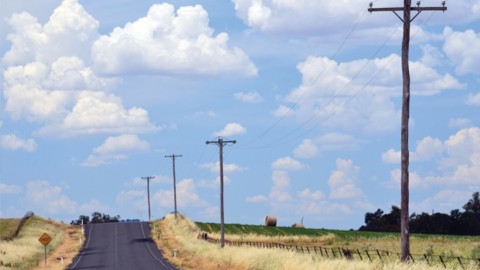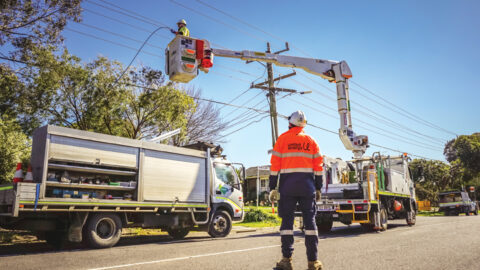by Imogen Hartmann, Editor, Energy magazine
Australians took to the voting stands at the end of May 2022 and made it clear that time was up on climate change inaction, with Labor unseating the Coalition to form our new Federal Government. Amongst other things, Labor made a clear commitment to boosting renewable energy and cutting emissions, and subsequently appointed a new ministry to do so on 1 June. Here, we take a look at what our new energy ministry looks like, as well as the progress they’ve made so far.
Upon handing down his ministerial appointments, Prime Minister Anthony Albanese asserted that the new Government would promote a transition to clean and renewable energy, encourage the uptake of electric vehicles, and tackle surging energy costs.
“This is a team with people who are absolutely committed to making a difference as Ministers and Assistant Ministers in my Government,” Mr Albanese said.
Chris Bowen was appointed as Minister for Climate Change and Energy, with Jenny McAllister as Assistant Minister. The appointments marked the first time since 2013 that Australia has had a Minister for Climate Change at the federal level. Mr Bowen replaced Angus Taylor who was Minister for Energy and Emissions Reduction, while Ms McAllister replaced Tim Wilson who lost his seat of Goldstein to independent Zoe Daniel. So, what do we know about Mr Bowen and Ms McAllister?

Federal Minister for Energy and Climate Change, Chris Bowen. Member for McMahon. Image: chrisbowen.net
Chis Bowen – Member for McMahon (New South Wales)
Mr Bowen resides in Smithfield, Western Sydney, where he grew up and attended Smithfield Public School and St Johns Park High School. He graduated from the University of Sydney with a Bachelor of Economics, and he also holds a Masters Degree in International Relations and a Diploma in Modern Languages (Bahasa Indonesia).
Joining the Labor Party in 1988, he was elected to Fairfield Council in 1995, where he then served as Mayor of Fairfield from 1998-1999. He also served as President of the Western Sydney Regional Organisation of Councils from 2000 to 2002. Mr Bowen entered Federal Parliament in 2004 and has held a wide range of portfolios including serving as Treasurer, Minister for Human Services, Minister for Immigration and Minister for Small Business.
Upon Labor’s election win, Mr Bowen emphasised the importance of renewable investments in driving down energy bills. “Renewable energy is the cheapest form of energy,” Mr Bowen said. “The good news is that Australia now has a Government that will bring on more renewable energy through our investment in the grid.
The good news is that the Australian Government will now have a policy to see power prices fall through investments in renewable energy, the cheapest form of energy, that’s the better news for the Australian people.” However, Mr Bowen also criticised the outgoing Liberal Government for its “denial and delay” of clean energy transition strategies.

Jenny McAllister, Assistant Minister for Climate Change and Energy, Senator for New South Wales. Image credit: www.jennymcallister.com.au.
Jenny McAllister – Senator for New South Wales
Ms McAllister grew up on the north coast of New South Wales and attended the University of Queensland and the University of Sydney. A member of the Labor Party since 1992, Ms McAllister has served as National President of the ALP and as a member of the ALP National Policy Committee.
With a strong focus on climate change and environmental management, Ms McAllister is the Co-Founder of the Labor Environmental Activist Network (LEAN) with Kristina Keneally, a former Premier of New South Wales. Ms McAllister is “passionate about managing the economy to achieve social justice and social inclusion, and better outcomes for climate and sustainability”, with interests in gender equality, marriage equality and new opportunities for community participation in politics.
New emissions reduction pledge
Since taking office, Mr Albanese and Mr Bowen have announced Australia’s updated Nationally Determined Contribution (NDC) under the Paris Agreement to the Executive Secretary of the United Nations Framework Convention on Climate Change (UNFCCC).
This formalised Australia’s pledge to reduce greenhouse gas emissions by 43 per cent below 2005 levels by 2030, putting Australia on track to achieve net zero emissions by 2050.
The Government’s set of policies also includes:
- $20 billion investment in Australia’s electricity grid to accelerate the decarbonisation of the grid
- An additional $300 million to deliver community batteries and solar banks across Australia
- Up to $3 billion investment in the new National Reconstruction Fund to support renewables manufacturing and low emissions technologies
- Powering the Regions Fund to support the development of new clean energy industries and the decarbonisation priorities of existing industry
- A further $100 million to train 10,000 new energy apprentices in the jobs of the future
- $10 million New Energy Skills Program to provide additional training pathways
- The introduction of declining emission baselines for Australia’s major emitters, under the existing Safeguard Mechanism
- Australia’s first National Electric Vehicle Strategy, to reduce emissions and accelerate the uptake of electric vehicle
- Doubling the existing investment in electric vehicle charging and establishing hydrogen refuelling infrastructure to $500 million
- The application of new standardised and internationally-aligned reporting requirements for climate risks and opportunities for large businesses
- A commitment to reduce the emissions of Commonwealth Government agencies to net zero by 2030
- Restoring the role of the Climate Change Authority, while keeping decision-making and accountability with Government and introducing new annual Parliamentary reporting by the Minister.
A jointly-issued statement said, “We will support the transition to renewable energy by investing in the transmission and storage needed to balance the grid, which will lower energy prices and support economic growth.
“Our plan will create more than 604,000 jobs, with five out of six new jobs to be created in the regions, and will spur $76 billion of investment.
“Australia’s abundant renewable energy resources mean we’re well placed to become a clean energy superpower.”
A tumultuous start
The new Federal Energy Ministry has its work cut out, with an unfolding energy crisis coinciding with its takeover. Supply issues and the war in Ukraine have resulted in sky-rocketing electricity and gas prices, with governments and industry bodies scrambling to get a handle on things.
Following a historic convention of the federal, state and territory energy ministers, Mr Bowen announced a unified decision to back renewables and storage as part of a new National Transition Plan to protect Australians into the future. We cover the gas supply crisis and the National Transition plan in depth in our article More demand than supply: where Australia’s gas went wrong on page 56.
If the last couple of months is anything to go by, Mr Bowen and Ms McAllister will have their hands full with challenging circumstances that will require smart policies, decisive action, and ongoing collaboration with the industry and community.


















FEDERAL ENERGY POLICY IS COMPLETELY ON THE RIGHT TRACK NOW AND SHOULD HOLD ALL THE MAJOR GAS PLAYERS FULLY ACCOUNTABLE TO THE AUSTRALIAN BUSINESS AND PRIVATE CONSUMERS . KEEP UP THE GOOD WORK.
Phillip Silove.-Senior Citizen. Retired Lawyer. Early Get Up supporter.